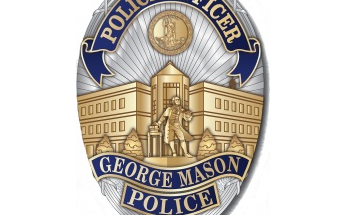Grad student dies in terrorist attack in Afghanistan
BY ERIK TRUONG, STAFF WRITER
Mason faced a somber day Jan. 10 when Mason graduate student Yama Quraishi was killed in a terrorist attack while in Afghanistan.
Working for the Afghanistan Embassy in D.C. as the head of the passport section, Quraishi advocated for peaceful relations and held a personal agenda of eradicating polio in his native country. Quraishi was working towards his master’s degree at Mason’s School of Conflict Analysis and Resolution. He was 34 years old.
As reported by CNN in the article, “Dozens killed in Kabul suicide bombings, Kandahar blast,” Quraishi was on a humanitarian mission in Afghanistan when he died. He was staying at the Kandahar province governor’s guesthouse when there was a terrorist bombing near the residence. Kandahar Governor Humayun Azizi and an envoy from the United Arab Emirates were lightly wounded, but it the Afghan Embassy later confirmed that Quraishi was killed in the attack.
According to CNN, attacks were rampant that Tuesday, with three additional suicide bombings and an explosion in Kabul killing more than 36 people and wounding 76 others. The attacks were claimed by the Taliban.
Dean Kevin Avruch of the School for Conflict Analysis and Resolution mourned the death of Quraishi the following day on Facebook.
“Other students come to S-CAR from less dangerous places, but after completing their studies choose to work where their skills and dedication are needed most. All of them work in the service of peace,” Avruch said.
Hamid Farhad, a consultant for the non-profit organization WATERisLIFE, said he became close friends with Quraishi before his passing. Farhad said he would do favors for Quraishi like pick him and his family up from Dulles Airport, and their professional relationship grew to a sibling bond. Farhad added that, after working together in and out of the office, they became carpool companions to and from the embassy every single day. They collaborated on economic issues regarding Afghanistan and helped coordinate and arrange meetings for high-level diplomats within the D.C. area. They would regularly have after-work dinners together or go on weekend excursions to the gym and grocery store.
“I didn’t see this as a friendship,” Farhad said, “I saw him as an older brother [and a] best friend. The advice he gave me, the talks we had… it was truly priceless.”
Farhad emphasized that, while in his early thirties, Quraishi was already a bright and optimistic fighter for his motherland. Prior to his diplomatic duties, Farhad wrote, Quraishi was Former President Hamid Karzai’s personal secretary and a medical doctor in Afghanistan with UNICEF. He worked towards his personal goal of eradicating the endemic poliovirus from Afghanistan.
According to President Cabrera’s statement the day after Quraishi’s death, Quraishi had been involved for more than two years in a polio eradication campaign and personally helped administer care to those in remote villages. According to the World Health Organization’s website, the number of polio cases decreased to 74 in Afghanistan in 2014—a 99 percent drop since 1988, when there were more than 350,000 reported cases.
Larry Sampler, who previously worked as an assistant administrator for the U.S. Agency for International Development’s Office of Afghanistan and Pakistan Affairs, met Quraishi often at the embassy. While not a close friend, Sampler said he found Quraishi to be a valiant patriot for his country.
“At a time when many Afghans were departing Afghanistan, he voted with his feet to remain committed to making his country better,” Sampler said.
Alaha Ahrar is a renowned advocate and human rights activist working for the community outreach organization FACETS’ education and community development program in Fairfax. Ahrar and Quraishi first met at an official meeting that focused on human rights, Ahrar said.
Ahrar said that although Quraishi was a talented doctor who had already been through the rigorous training of medical school, as soon as he arrived in the U.S., he had a desire for more education.
“He said, ‘I fulfilled my parents’ wish of becoming a medical doctor, now they are happy. It is my turn now,’” Ahrar said.
Ahrar remembered him then setting his eye on a degree in conflict resolution—a subject close to his heart. It when then that Ahrar recommended Mason for consideration, and after a week of contemplation, Quraishi chose to attend.
“I believe, directly and indirectly, he educated so many students by sharing first-hand information about Afghanistan’s political situation with all,” Ahrar said.
To Ahrar, Sampler and Farhad, the death of Quraishi became more than a mourning of those who knew him; his untimely death deprived his homeland of the potential he had to offer, they said.
“Yama was a patriot who always wanted to return to Afghanistan and help out the country and its people,” Farhad said.
President Cabrera passed on a message to the Mason community via a university-wide e-mail, saying, “Quraishi represented the best of George Mason University… When we say that Mason students are driven to serve, I can think of no better example than the life that Mr. Quraishi lived.”




